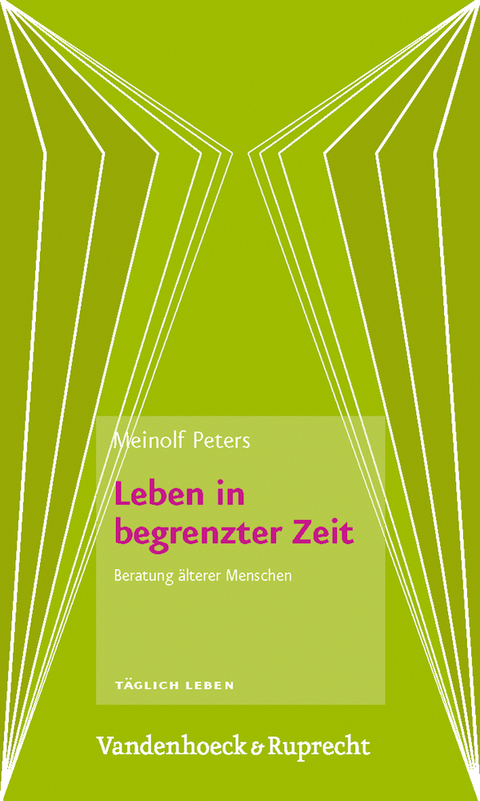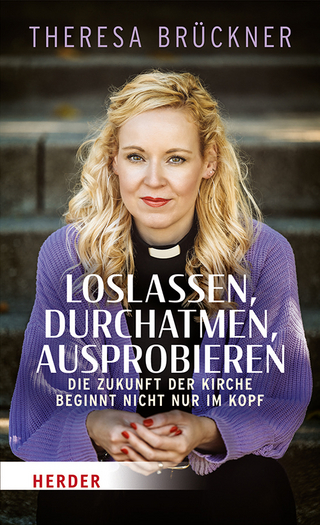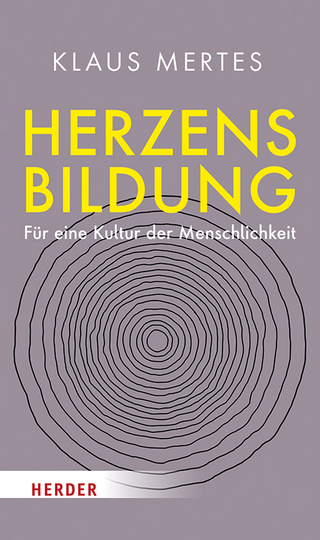Leben in begrenzter Zeit
Vandenhoeck & Ruprecht (Verlag)
978-3-525-67011-8 (ISBN)
- Titel leider nicht mehr lieferbar
- Artikel merken
Das Alter verändert sich in Folge der demografischen Entwicklung und des gesellschaftlichen Wandels zusehends. Es löst sich mehr und mehr aus der Erstarrung, die mit der lange Zeit ausschließlich negativen Sicht dieses Lebensabschnittes einherging, und wandelt sich zu einer dynamischen Lebensphase. Altern ist nicht mehr nur ein Sein zum Tode, sondern ein Lebensabschnitt, der eine eigenständige Identität erfordert, die Abbau und Verlust als auch Entwicklung umfasst, d.h. die die Ambivalenz des Alters auszuhalten vermag. Daraus aber gehen auch neue Anforderungen, Probleme und Konflikte hervor, die die 'klassischen' Altersthemen wie Verlust des Ehepartners oder Krankheit und Hilfs- und Pflegebedürftigkeit ergänzen und zu einem wachsenden Beratungsbedarf führen. In dem Buch werden zunächst einige Grundlagen heutigen Alterns dargelegt, anschließend werden zahlreiche Beratungsthemen untersucht und Konflikte herausgearbeitet, die zu einer Beratung Anlass geben können. Schließlich werden die Perspektiven von Beratung, die sich an einem guten Alter orientieren, skizziert. In einem letzten Abschnitt wird auf die konkrete Beratungspraxis eingegangen, wobei zunächst Versorgungsstrukturen und derzeitige Beratungsangebote erläutert und danach auf die Besonderheiten im Umgang mit älteren Ratsuchenden hingewiesen wird; dabei kommt der Gestaltung der Beratungsbeziehung eine besondere Bedeutung zu. Ziel des Buches ist es, das Verständnis für die besonderen Sorgen und Nöte älterer Menschen zu wecken und darauf hinzuweisen, dass sie dabei häufig auf eine beratende Unterstützung angewiesen sind. Dies aber geschieht immer im Hinblick auf die Möglichkeit eines gelingenden Alters. The act of aging is now in the process of changing as a result of the modern demographic developments and their social ramifications. It is moving away from a rigid interpretation that long associated it with a solely negative view of this period of life, toward one of being a dynamic time in a human´s lifetime. Aging is no longer the door to death, but a lifetime period that demands its own identity, one that includes degeneration and loss as well as development, i.e., an ambivalence toward growing older. In addition, problems and conflicts emerge that complement the more “classical” themes of aging such as loss of partner, sickness and helplessness/care dependency and lead to a greater need for counselling. This book first presents the basics of modern aging and then looks at a number of themes and conflicts that may lead to counselling needs. Finally, the book provides the perspectives of a sort of counselling that is oriented to living well in old age. The final section provides concrete examples from counselling practice; the present structures of caretaking and existing counselling offers are discussed and the peculiarities of dealing with the elderly are shown. Particular emphasis is placed on establishing a good relationship in the counselling setting.One goal of this volume is to develop an understanding for the special worries and needs of older persons and to point out that they often are reliant on such counselling help. But the main thing is to enable them to live a successful life.
Meinolf Peters, Dr. phil., Diplom-Psychologe, Psychoanalytiker, Leiter der Abteilung Gerontopsychosomatik und -psychotherapie Rothaarklinik für Psychosomatische Medizin, Bad Berleburg.
Ageing is not an inflexible period of life any more because of the demographic development and the social changes that have taken place in recent years. It is not regarded solely pessimistically but as a dynamic phase of life. Older people experience that their physical abilities decrease, they have to cope with loss, but also with development. Ageing requires its own identity that can handle these challenges. Therefore special demands arise regarding the psychosocial counselling that wants to support elderly people. Peters describes these requirements and explains the problems that accompany the praxis and process of psychosocial counselling.>
| Erscheint lt. Verlag | 18.8.2011 |
|---|---|
| Reihe/Serie | Täglich Leben |
| Sprache | deutsch |
| Maße | 123 x 205 mm |
| Gewicht | 202 g |
| Themenwelt | Geisteswissenschaften ► Religion / Theologie ► Christentum |
| Schlagworte | Älterer Mensch • Geriatrie • Seelsorge |
| ISBN-10 | 3-525-67011-7 / 3525670117 |
| ISBN-13 | 978-3-525-67011-8 / 9783525670118 |
| Zustand | Neuware |
| Haben Sie eine Frage zum Produkt? |
aus dem Bereich




